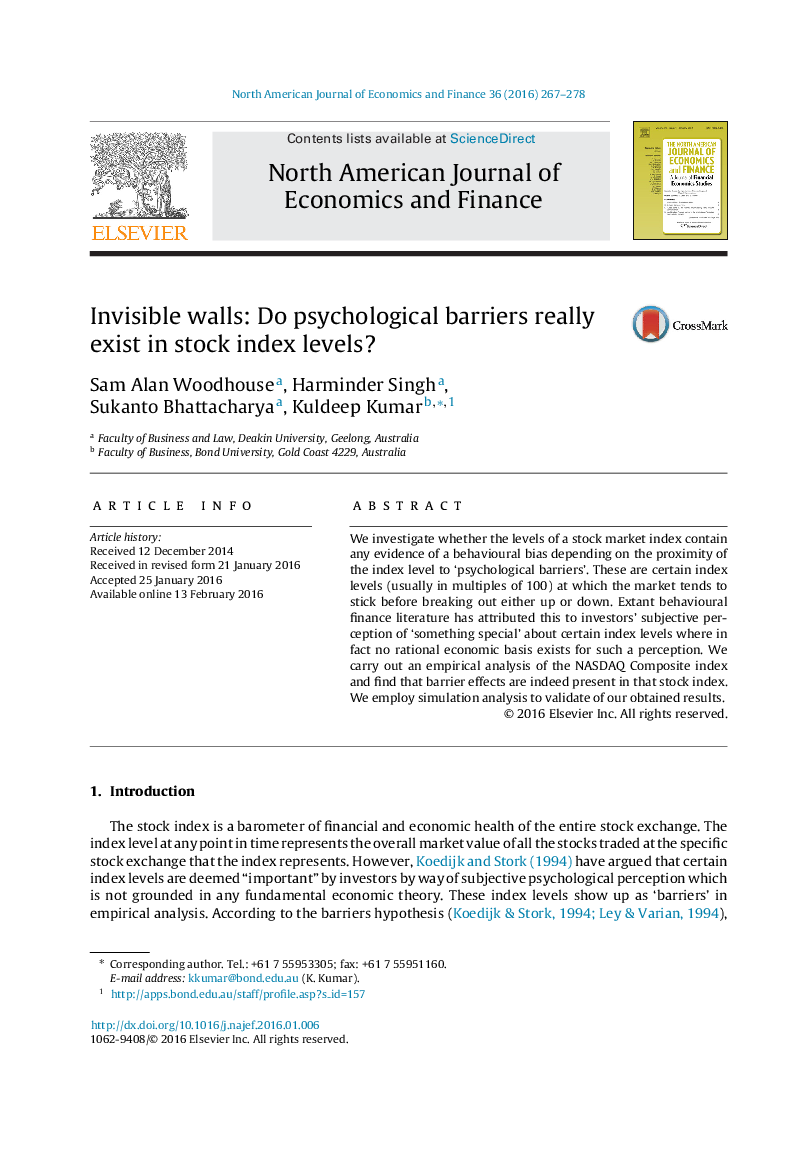| Article ID | Journal | Published Year | Pages | File Type |
|---|---|---|---|---|
| 973084 | The North American Journal of Economics and Finance | 2016 | 12 Pages |
•We investigate whether the levels of a stock market index contain any evidence of a behavioural bias depending on the proximity of the index level to ‘psychological barriers’.•We carry out an empirical analysis of the NASDAQ Composite index and find that barrier effects are indeed present in that stock index. We employ simulation analysis to validate our obtained results.•We contribute to the body of literature of psychological barriers in financial markets by examining a highly liquid NASDAQ market in relatively recent time period. Our study fits with the well-recognised behaviour in the investment community as well as areas of psychological study.•From practitioners' point of view, there is an opportunity to take these psychological barriers into fuller consideration when devising feasible trading and investment strategies.•Further, we can say that investors are not only acting on the price and fundamentals of individual securities, but their trading strategies are also influenced by the index barriers. The NASDAQ Composite index is one of the world's most tracked stock indices and the knowledge of these barriers can help in understanding the latent human behaviour that the index reflects.
We investigate whether the levels of a stock market index contain any evidence of a behavioural bias depending on the proximity of the index level to ‘psychological barriers’. These are certain index levels (usually in multiples of 100) at which the market tends to stick before breaking out either up or down. Extant behavioural finance literature has attributed this to investors’ subjective perception of ‘something special’ about certain index levels where in fact no rational economic basis exists for such a perception. We carry out an empirical analysis of the NASDAQ Composite index and find that barrier effects are indeed present in that stock index. We employ simulation analysis to validate of our obtained results.
